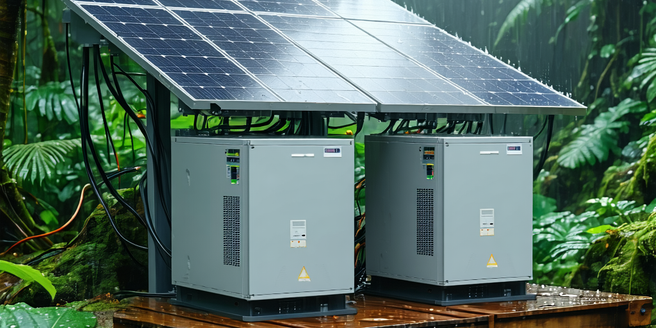
Understanding Humidity and Its Impact on Electronics
Humidity, the concentration of water vapor in the air, plays a critical role in the performance of various electronic devices. Excessive humidity levels can lead to condensation within sensitive components, causing corrosion and short circuits. This is especially true in regions with high ambient moisture, where electronics are more susceptible to damage and malfunctions. On the flip side, environments that are too dry can cause static electricity buildup, posing another risk to electronic devices. Therefore, managing humidity is vital to ensuring the longevity and reliability of electronics. For electronic systems, maintaining an optimal range of humidity is crucial, often necessitating the integration of humidity control systems. These factors highlight the importance of understanding and mitigating the impact of humidity on electronic performance, particularly in technologies that require precise functioning.
How Humidity Affects Solar Inverter Efficiency
Solar inverters, the key component in photovoltaic systems, are vulnerable to humidity. Humidity affects their efficiency by causing moisture-related damage, such as corrosion of connections and degradation of sensitive materials. Over time, this moisture exposure can lead to insulation failure, reducing inverter life span and efficiency, and increasing maintenance costs. High humidity can seep into poorly sealed units, impairing performance and ultimately leading to unexpected power losses. Regular inspection and usage of dehumidifiers in inverter cabinets can help mitigate these challenges, ensuring that the system operates efficiently even in humid environments. By understanding how environmental humidity impacts solar inverter performance, stakeholders can make better choices regarding system installation and ongoing maintenance to extend inverter lifespan while maximizing energy output.
Common Humidity-Related Issues in Solar Inverters
Solar inverters often encounter several humidity-induced issues, predominantly electrical and structural. Moisture ingress can lead to rusting of metallic components, affected solder joints, and circuit failures. This is especially problematic in regions with high humidity levels or during the rainy season. Condensation inside the inverter can present a significant risk, potentially causing short circuits due to water contact. Furthermore, water can damage the casing and seals, allowing more moisture and other environmental contaminants in, which can exacerbate existing problems. These humidity-related issues can substantially impair the performance and safety of solar inverters. Preventive measures such as regular maintenance checks, improved enclosures, and appropriate sealing compounds can help in curbing these problems. By being proactive, solar system owners can safeguard their investments from complex humidity-related impacts.
Solutions to Mitigate Humidity Effects on Inverters
To combat humidity effects, employing robust protective measures is crucial. Start by selecting inverters with high ingress protection ratings, ensuring they can withstand moisture and dust. Regular maintenance routines should include checking for effective sealing and replacing compromised seals or gaskets. It’s important to train staff on recognizing early signs of humidity-related wear and tear. Utilizing climate control solutions, such as dehumidifiers, can help regulate moisture levels in the operating environment. Additionally, installing inverters in controlled environments or sheltered enclosures can minimize direct exposure to harsh weather elements. Conducting regular performance checks can also identify potential issues caused by humidity early on. Mitigation strategies like these can foster reliable inverter performance, reducing risks associated with humidity-induced malfunctions and extending equipment lifespan.
Future Innovations for Humidity-Resistant Inverters
As the demand for resilient solar inverters grows, innovators are exploring advanced materials and designs to enhance humidity resistance. Future inverters may incorporate nano-coating technologies to repel moisture and protect sensitive components. Research into smart inverters equipped with sensors to detect humidity levels and self-regulate internal conditions are promising. With the rise of AI and machine learning, systems may soon autonomously adjust operations based on environmental changes, enhancing efficiency. Efforts are also underway to develop more sophisticated sealing methods and materials that offer superior moisture barriers. By advancing these technologies, the industry aims to produce more robust, durable inverters capable of performing optimally under varied humidity conditions, ensuring greater reliability and energy output.
